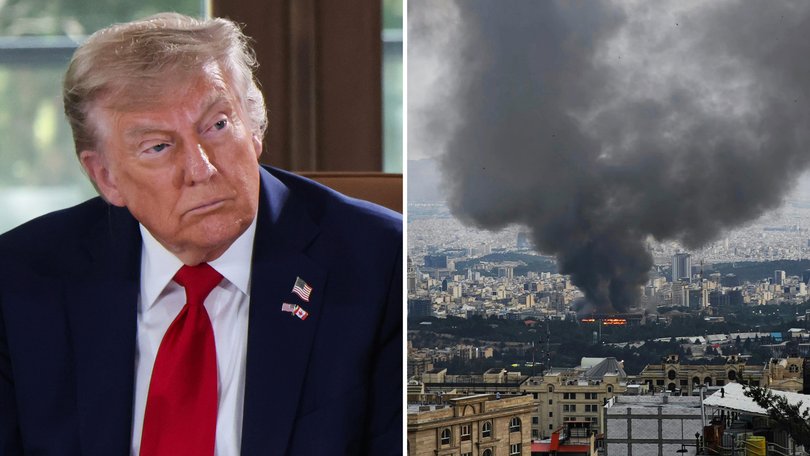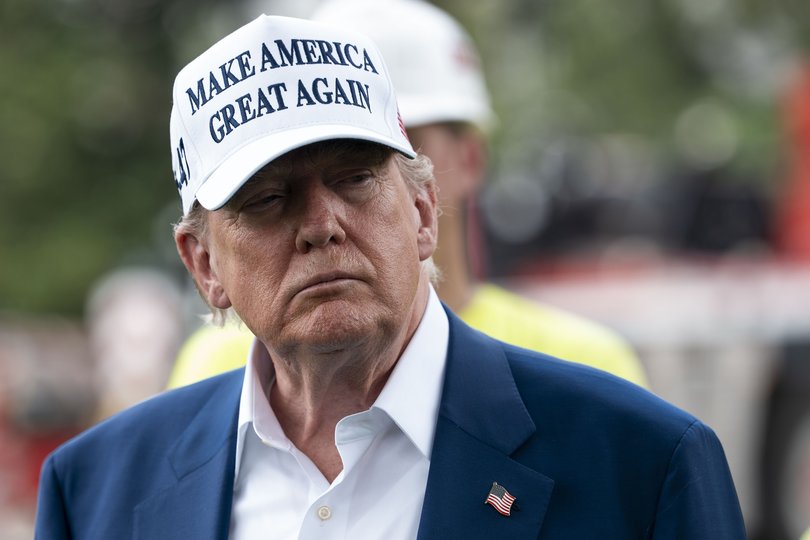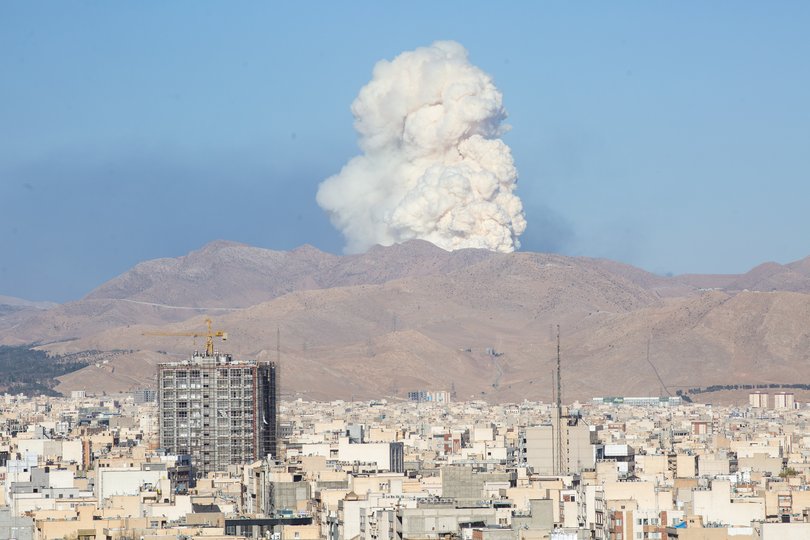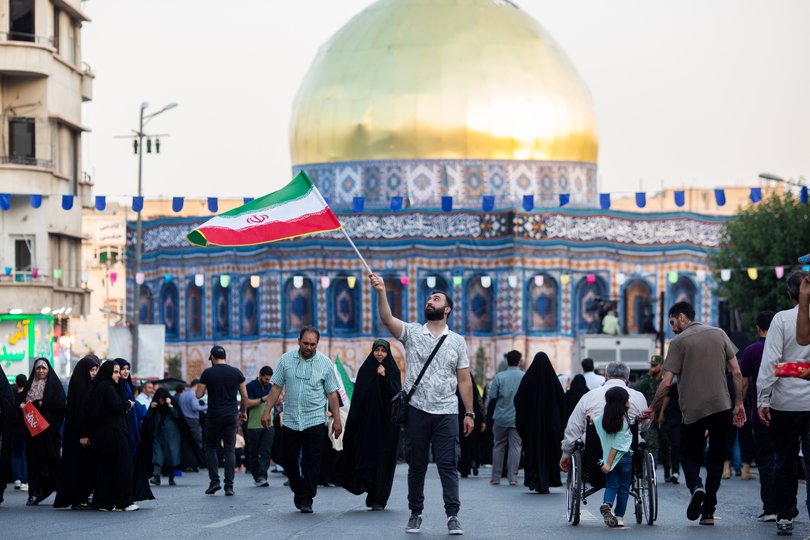THE NEW YORK TIMES: An Iran deal in two weeks? Hard to achieve, even if Donald Trump really wants one
DAVID E. SANGER: Ask diplomats who have negotiated with Iran, and they usually describe it with some variant of: Brace yourself, it takes a long time.

Ask diplomats who have negotiated with Iran, and they usually describe it with some variant of: Brace yourself, it takes a long time.
It took the better part of two years to put together the Obama-era agreement that all but halted Iran’s nuclear program. After President Donald Trump scrapped that deal in his first term, it took 15 months for the Biden administration to negotiate a way to piece it back together — at which point Iran’s supreme leader, Ayatollah Ali Khamenei, vetoed the near-final agreement.
So what could Trump, dangling the possibility that last-minute diplomacy could provide an alternative to bombing Iran’s main uranium enrichment facility, hope to accomplish in the two-week window he has given himself to make a decision?
Sign up to The Nightly's newsletters.
Get the first look at the digital newspaper, curated daily stories and breaking headlines delivered to your inbox.
By continuing you agree to our Terms and Privacy Policy.Not much, the veterans of such negotiations warn. But then again, the environment is very different this time.
Khamenei is the final word in all foreign policy issues — but he is also most likely in hiding, U.S. intelligence officials say.
Iran’s foreign minister and lead negotiator, Abbas Araghchi, says he is open to placing limitations on Iran’s nuclear output similar to what he and his colleagues negotiated with the United States a decade ago.
But Friday, he told his European counterparts in Geneva that Iran would never negotiate as long as Israel was dropping missiles on its military bases and nuclear facilities, and carrying out targeted killings of Iran’s Revolutionary Guard officers and nuclear scientists.

Trump, for his part, made clear to reporters Friday that he is interested largely in the coercive part of coercive diplomacy. Iran, he insisted, had only minutes left on the clock. “I’m giving them a period of time, and I would say two weeks would be the maximum,” he said.
And he dismissed the idea that the meeting in Europe would do anything but slow things down. “Iran didn’t want to speak to Europe,” he said. “They want to speak to us. Europe is not going to be able to help.”
Whether Trump is serious about negotiations or just buying time to better prepare for a military assault and its aftermath remains unclear.
But there was no public evidence yet that the contacts between Araghchi and Steve Witkoff, the president’s Middle East envoy, could lead to a meeting, much less a deal that would satisfy Trump. Or even that such a deal would be enough to hold back Israel’s determination to wipe out Iran’s nuclear facilities.
Araghchi knows every inch of the Iranian nuclear complex and was a central player in negotiating the 2015 nuclear deal, which Trump exited three years later. But even today U.S. officials do not know how much sway he holds with the ayatollah.
Witkoff is the mirror opposite: He knew virtually nothing about the Iranian program and has spent the past few months cramming on the details of nuclear enrichment and Iranian negotiating history. But he has a tight relationship with Trump that goes back to their New York real estate days and holds considerable sway over what constitutes an acceptable deal.

If the two men were able to come to the kind of agreement that has eluded them through 2 1/2 months of negotiations, they would still have to sell it back home.
“These are not normal times,” said Richard Haass, who oversaw Iran policy for President George H.W. Bush and was a senior State Department official for President George W. Bush. “The pressure on Iran, since they are losing, is more intense than it has ever been. And the pressure on Trump to use military force if it looks like the Iranians are trying to buy time rather than reach an agreement will be huge.”
Success may depend on exactly what Trump demands: the “unconditional surrender” that he keeps talking about or a narrower, face-saving halt in remaining nuclear enrichment, with the understanding that while Iran may retain what it views as its “right” to produce nuclear fuel, it will never again exercise that right.
“Two weeks may be enough time for an unconditional capitulation. A day suffices for that,” said Robert Malley, who participated in the negotiations that led to the 2015 agreement and then led the failed Biden-era effort to reconstitute some version of that deal.
But, Malley added, “that may be what President Trump wants, but it is almost certainly not what he will get. As the Islamic Republic sees it, it’s tantamount to being offered the choice between committing suicide and taking their chances at being killed. History suggests they will take their chances.”
Malley noted that there might be room for a diplomatic off-ramp, one in which “Iran agrees to ‘voluntarily’ and ‘temporarily’ stop enriching uranium, which is much easier now that its enrichment capacity is a shadow of its former self.” That, he added, could “give space for U.S.-Iranian negotiations and halt the mad dash to a U.S. war.”

It is the kind of creative approach that, when missiles were not flying, might be wordsmithed over weeks or months in Vienna, then taken back to Tehran and Washington for formal signoff. Clearly, no one has time for that process now. As he emerged from the talks in Geneva on Friday, Araghchi did not sound in the mood for even starting down that road, any more than Trump sounded very interested in negotiating.
The Iranian foreign minister suggested that, in retrospect, perhaps his talks with Witkoff had been an elaborate U.S.-engineered shadow play, a cover for the Israelis as they prepared for war.
“So they had perhaps this plan in their mind, and they just needed negotiations perhaps to cover it up,” Araghchi told Andrea Mitchell of NBC. “We don’t know how we can trust them anymore. What they did was in fact a betrayal to diplomacy.”
Iran, he said, would never entirely stop making nuclear fuel. “Zero enrichment is impossible,” he said. “This is an achievement of our own scientists. It is a question of national pride.”
This article originally appeared in The New York Times.
© 2025 The New York Times Company
Originally published on The New York Times
